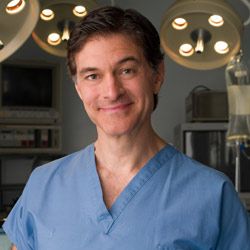The most important tool we have found across the board -- and this is true especially in times when you have financial crises, for example -- is that you build support around you, a social support that can catch you. For example, if you have bankruptcy or have had major litigation against you, these things all age you measurably -- some of them up to eight years. But if you have a social support around you to prop you back up again, you can reduce that loss to one year. And so there's a lot you can cope with as long as you've got people around you that you can talk the problem through with.
Money is all about taking control of your destiny. In fact, the biggest stressor of all is not having control. If you have to spend your life trying to deal with someone else's agenda and not yours, then you're going to suffer from more stress, and it's going to show. This is true with any problem that you face in your life. As long as you have control over your decision-making processes, you'll have some stress. But if you have concerns about whether or not you can do anything unless someone else permits you to, that's far more stressful, and that's where many Americans end up. There are other stressors no matter where we are in our lives that continue to pop up. That's why it's not the stress itself: It's your response that defines how well you're coping.
A lot of us seem like we're Gordon Gecko on the outside -- the Wall Street tycoon out to make a fortune for ourselves -- but on the inside most of us are like Fred Flintstone. We have a very simple understanding of money, and I'm not talking about knowing how to invest money. We instinctively are much more adverse to taking risks with our money than we are with making money.
And one great example of this is if you walk into a movie theater and reach into your pocket to pay for tickets and a $20 bill that you had there has fallen out of the bottom of your pocket through a hole. You would just go to your other pocket, get 20 more dollars, and buy the ticket. Not a big deal. But if you buy a ticket and somehow misplace it, you won't buy a new ticket again, usually. That seems paradoxical. But it's the exact same thing. You lost the exact same amount of money, but there's just something instinctual that prevents you from wanting to buy those tickets again because you already did it once.
And that's the example of how we don't always behave in a rational way, and I think one of the biggest misperceptions about money and beauty and health, in general, is that we think of ourselves as inherently rational beings, and I've got news for you: If you have a stroke that knocks out the emotional center of your brain, you can no longer make rational decisions. So we are really not a very rational species, and we're not supposed to be rational. That's not a bad thing. We hold back from acting and what our mind tells us because our gut instinct usually is more accurate.
